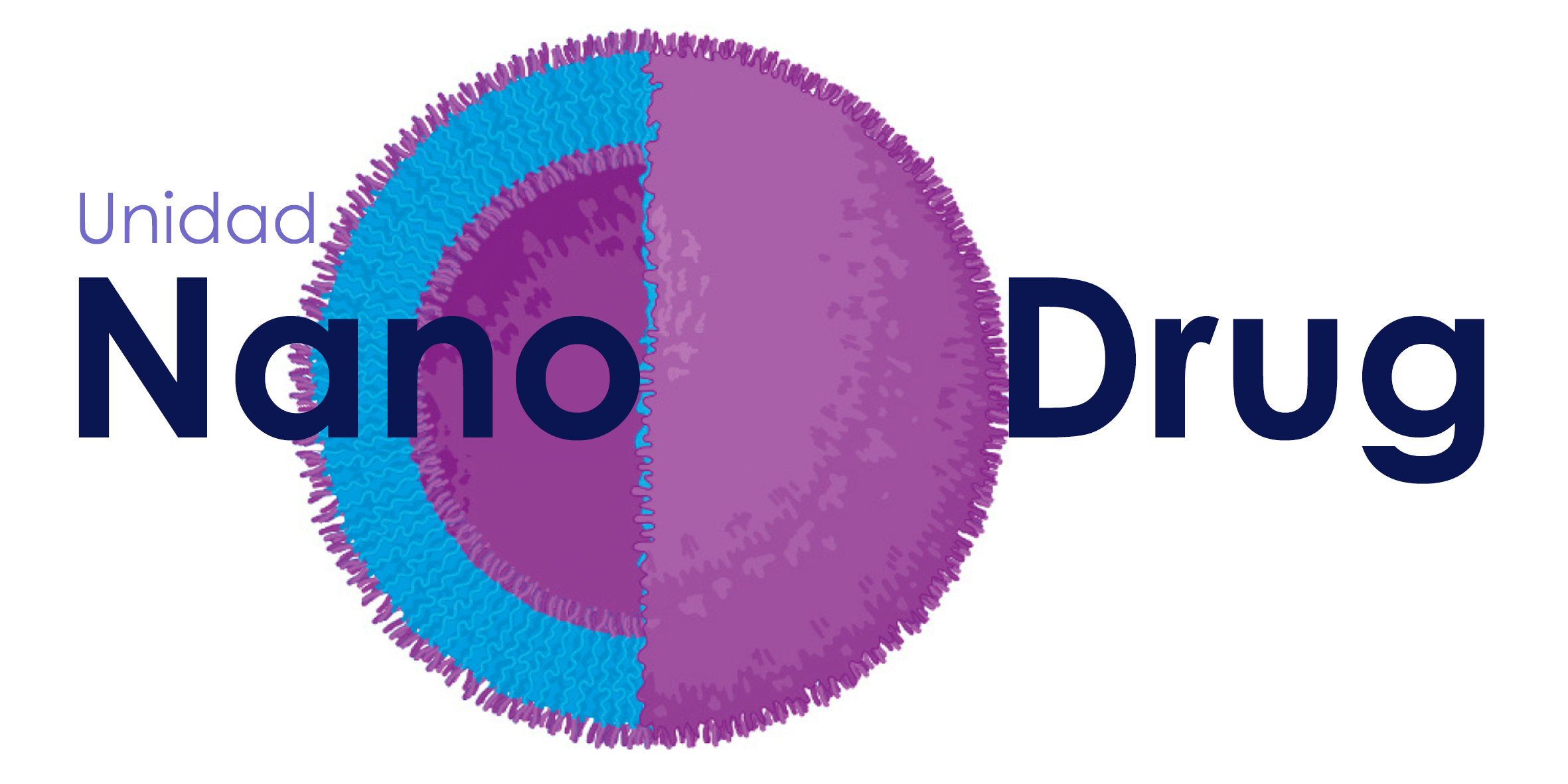TEAM
Cancer treatment currently requires the joint efforts of a multidisciplinary team. The alternatives for treatment are constantly expanding. With the use of new effective chemotherapy, hormone therapy, and biological agents and with information regarding more effective ways to integrate systemic therapy, surgery, and radiation therapy, elaborating an appropriate treatment plan is becoming more complex. Developing such a plan should be based on knowledge of the benefits and potential acute and late toxic effects of each of the therapy regiments. Despite advances in early detection and understanding of the molecular bases of cancer biology, many patients with early-stage cancer have recurrent disease, which is metastatic in most cases. To offer better treatment with increased efficacy and low toxicity, selecting therapies based on the patient and the clinical and molecular characteristics of the tumor is necessary.
Only teams that have a clear translation to the clinic and aim to resolve a social and medical problem have the chance to reach their goal. And nanoDRUG unity is one of them. The reason behind is because this unity combines four disciplines in a unique, single consortium that together enable the search of novel therapies for cancer: Chemists and Nanotechnologists to generate novel medicines and nanomedicines nanodevices, Cellular biologists from identification of mechanisms of resistance and targeted combinations to efficient clinical drug development and Pharmacologists to develop preclinical studies of the drugs generated.
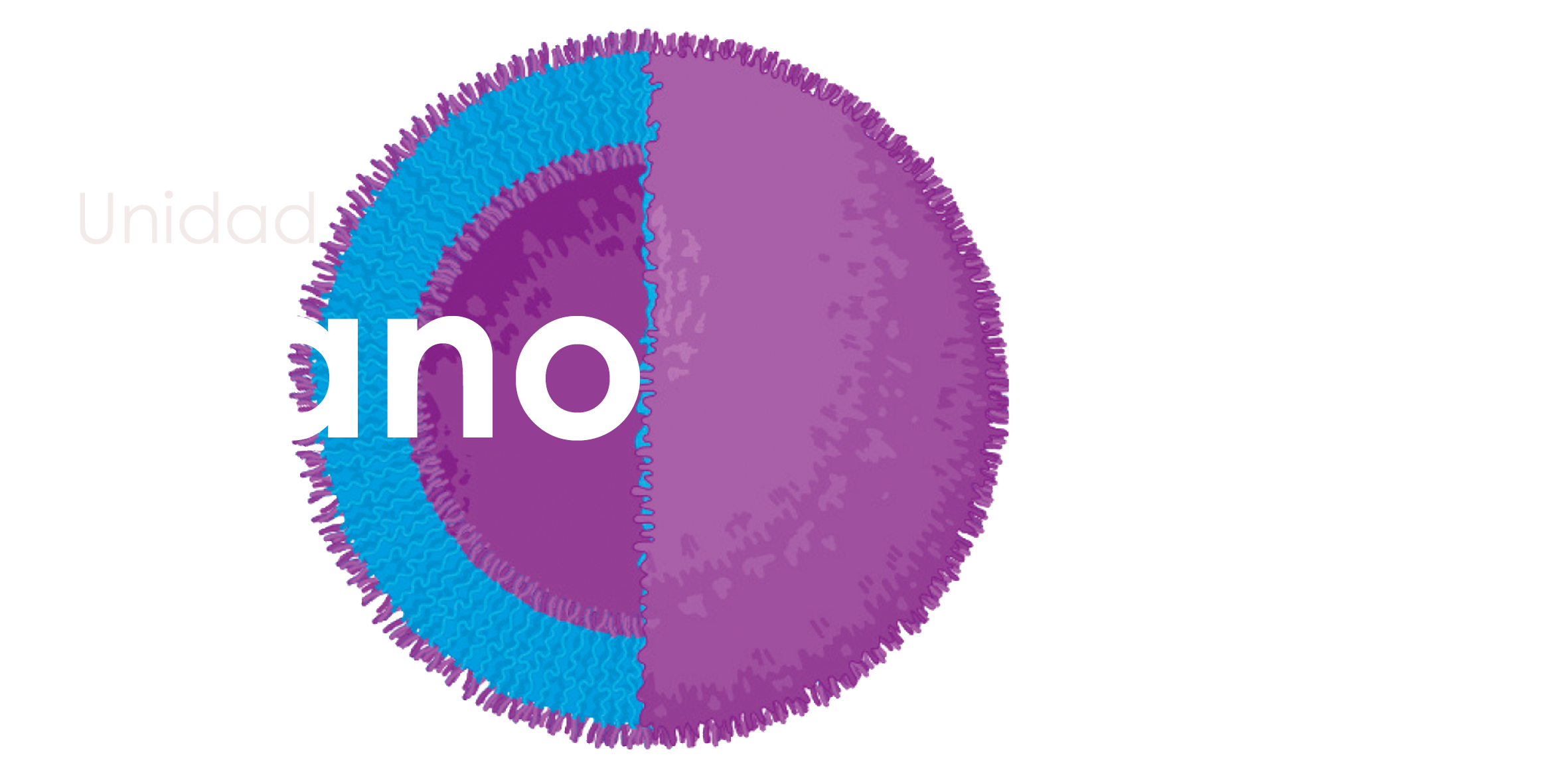
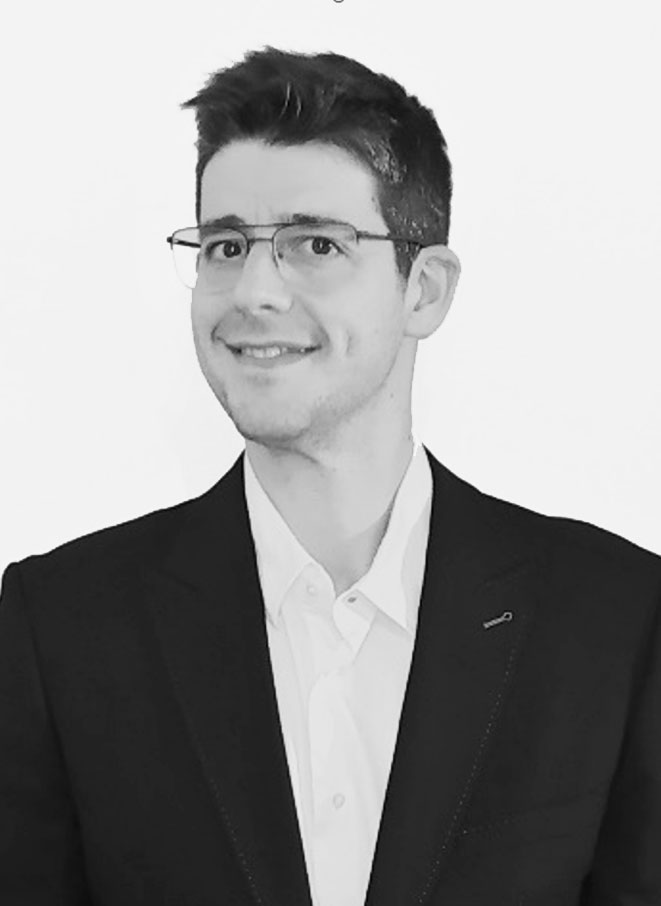
Carlos Alonso Moreno
Carlos was born in 1978 outside Ciudad Real, Spain. In 2000, he earned his Bachelor of Science in Chemistry from the University of Castilla-La Mancha. Alonso-Moreno earned his Ph.D. with Professor Antonio Antiñolo at University of Castilla-La Mancha in 2005 for his dissertation on metallocene catalyzed olefin polymerization. After a two-year postdoctoral appointment with Professor Manfred Bochmann at the School of Pharmacy in the University of East-Anglia, United Kingdom, and a short brief of one-year at the University of Rey Juan Carlos, Spain, Alonso-Moreno began his independent career at University of Castilla-La Mancha in 2008. In 2010, he was promoted to Associate Professor and in 2018 was named Professor of Inorganic Chemistry at the School of Pharmacy in the University of Castilla-La Mancha, Spain, in which he was Vice-dean (2012–2017). His research has been mainly involved in the design and development of new organometallic entities as efficient catalysis to produce biodegradable polymers. Today, he is mainly interested in the application of the tailor-made polymeric macrostructures in oncology by the generation of nanodevices.
ORCID: 0000-0002-7588-0781
Scopus Author ID: 8613316700
ResearcherID: K-2087-2014
Google Scholar: https://scholar.google.es/citations?user=Lq7zDPkAAAAJ&hl=es

Iván Bravo Pérez
ORCiD: https://orcid.org/0000-0003-1589-5399
Researchgate: https://www.researchgate.net/profile/Ivan-Bravo-3
Scholar Google: https://scholar.google.es/citations?user=bUTCR6wAAAAJ&hl=es
Graduate and PhD in Chemistry from the University of Castilla-La Mancha (UCLM). Assistant Professor at the UCLM Faculty of Pharmacy teaching Physical Chemistry applied to the Pharmaceutical field in areas such as Transport and Surface Phenomena, Chemical Kinetics or Photophysics applied to Biological systems.
He is currently developing lines of research at the Faculty of Pharmacy focused on the design of new fluorescent biosensors for FLIM microscopy; Nanotechnology applied for the development, distribution and monitoring of drugs; and Design of new fluorescent materials for biomedical and therapeutic applications.
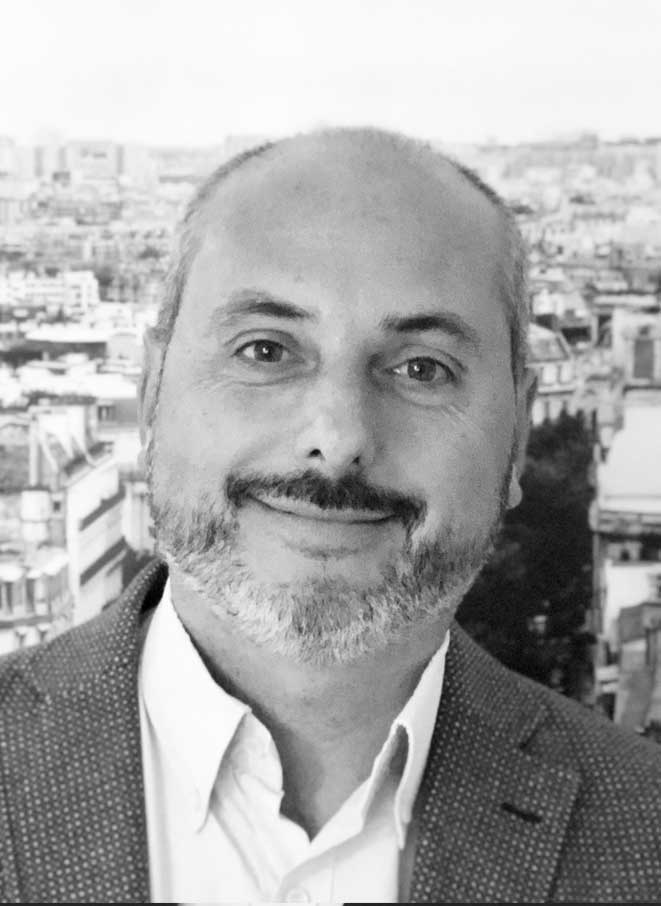
Alberto Ocaña Fernández
alberto.ocana@salud.madrid.org
ORCiD: https://orcid.org/0000-0003-1589-5399
Scholar Google: https://scholar.google.com/citations?user=Jvw49z0AAAAJ&hl=es
Oncologist scientist, leading the Experimental Therapeutics Unit, at the Hospital Clínico San Carlos in Madrid, Spain. He trained in Molecular Biology at Vall d´Hebron Hospital, Barcelona and in Drug Development and Design of Clinical studies at Princess Margaret Hospital in Toronto, Canada. He has also been a visiting professor at Yale University. Dr Ocana has more than 180 published articles in scientific journals.
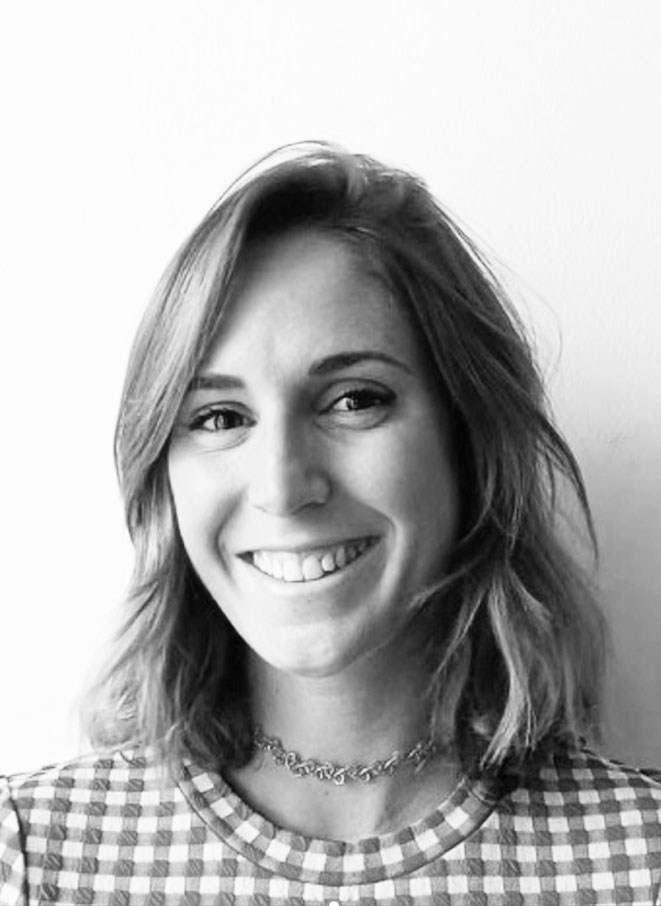
Almudena del Campo Balguerías
ORCiD: 0000-0002-0119-6733
Almudena was graduated in Pharmacy in 2021. After finishing her degree, she got an internship in the KU Leuven University, Belgium. There she worked in a research project in the Molecular Imaging and Photonics lab, where her interest in pursuing science really took shape.
Just a few months later, she obtained a grant to start her PhD in the Department of Inorganic Chemistry at Castilla-La Mancha University. She is currently working in the search for new therapeutic agents as an alternative for the treatment of cancer, as well as in the design of nanovehicles to encapsulate them with the goal of enhance its properties.
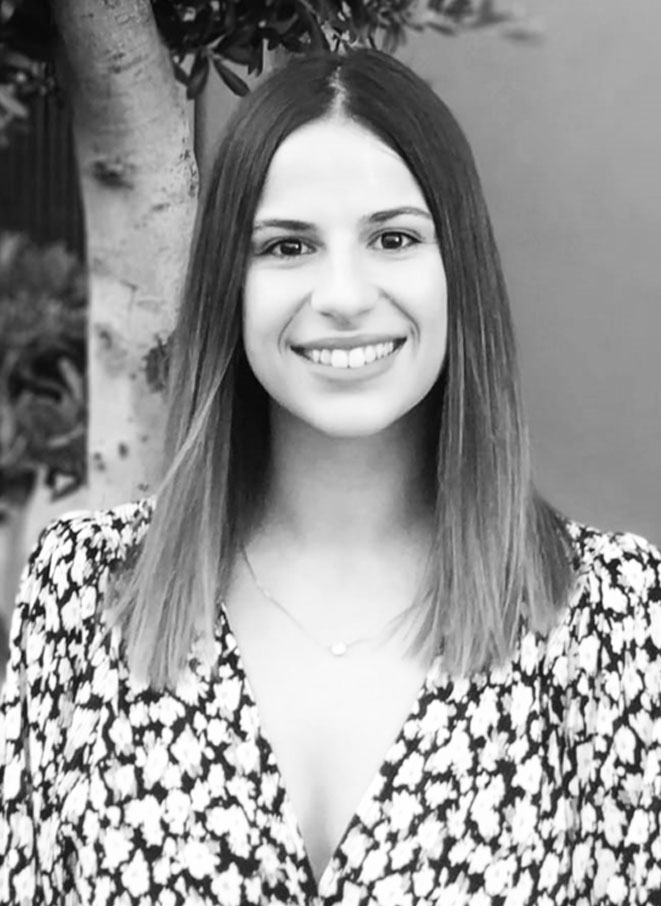
Cristina Blasco Navarro
ORCiD:
Cristina has recently been graduated in Pharmacy. In 2021, she received a scholarship from Spanish Association Against Cancer (AECC) to carry out a research project at Pharmacy School in Albacete. Afterwards, in 2022 during the last year of her bachelor she also obtained a grant from University of Castilla-La Mancha to design new nanovehicles to encapsulate antitumor drugs.
She is currently doing an internship in NOVA School of Science and Technology in Lisbon where she is learning about different materials for the synthesis of nanovehicles.

María Arenas Moreira
ORCiD: 0000-0003-4112-669X
María was graduated in Pharmacy (2021) at University of Castilla-La Mancha. She is currently a PhD student at the same University, funded by ACEPAIN (Asociación Costuras en la Piel en Apoyo a la investigación de cáncer en Albacete).
During her bachelor she acquired undergraduate research experience in Inorganic Chemistry, Physical Chemistry and Nanotechnology, complemented by an internship in Twente University (The Netherlands) once she was graduated.
Currently, her research is based on the development of new nanosystems to enhance the activity of new antitumor drugs.

Sofía Blas Gómez
Sofía is currently a second-year PhD student in Chemistry at the Faculty of Pharmacy (University of Castilla-La Mancha), where she works on the development of fluorescent biosensors for biomedical applications. Her research focuses on the synthesis and characterization of functionalized quantum dots and guanidine-based compounds for intracellular sensing using advanced fluorescence microscopy techniques such as FLIM.
Her scientific journey began during her undergraduate studies in Pharmacy, when she was awarded a research scholarship from the Spanish Association Against Cancer (AECC). Since then, she has participated in several national and international research projects, contributing to innovative approaches in cancer diagnostics and nanomedicine.
Sofía is passionate about translational research, scientific outreach, and the design of novel tools for theragnostic applications.
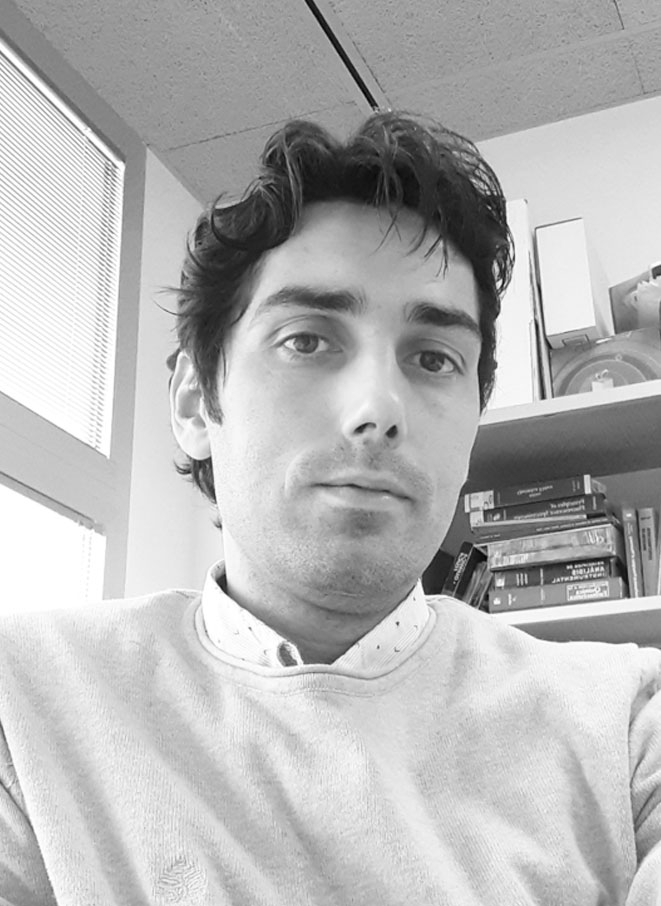
Andrés Garzón Ruiz
Andrés Garzón Ruiz is Graduated in Chemistry from the University of Jaén and Doctor in Chemistry from the University of Castilla-La Mancha. Lecturer at the Faculty of Pharmacy from the University of Castilla-La Mancha since July 2010. He has researched in diverse fields of Physical Chemistry, particularly fluorescence spectroscopy and microscopy applied to Pharmacy and Biomedicine. His current research lines are focused on the development of fluorescent probes for biological systems (employing FLIM: Fluorescence Lifetime Imaging Microscopy) and the study of drug-protein interactions using various fluorescence spectroscopy techniques. He is also involved in other projects aimed at unraveling the photophysics of fluorophores with biological and biomedical applications.
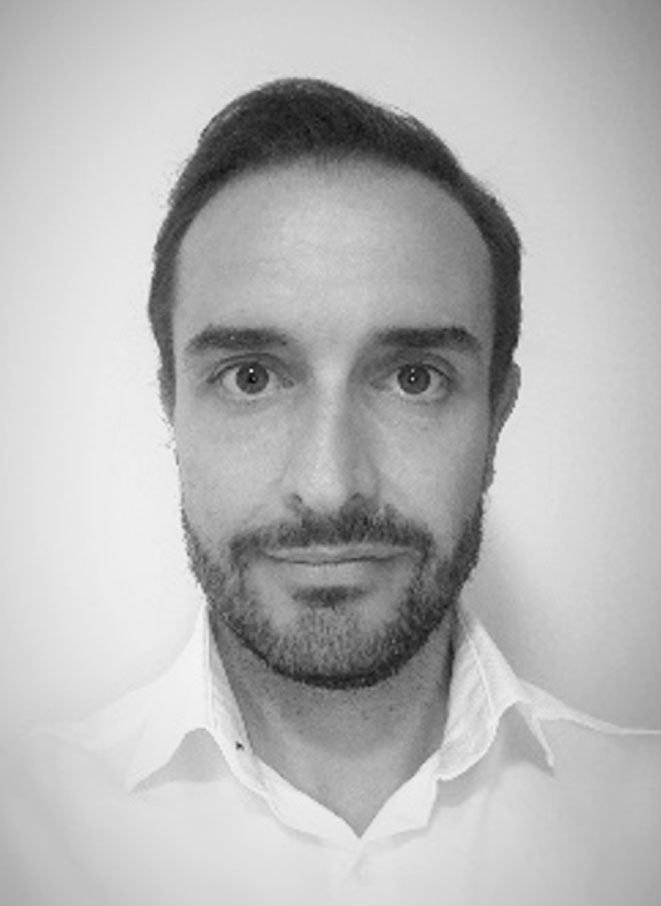
José Antonio Castro-Osma
José Antonio Castro-Osma is a lecturer at the School of Pharmacy of the Universidad de Castilla-La Mancha. After completing his PhD studies at the Universidad de Castilla-La Mancha in 2013 under the supervision of Prof. Antonio Otero and Dr. Agustín Lara-Sánchez, he completed a postdoctoral position with Prof. Michael North at the Green Chemistry Centre of Excellence at the University of York. His current research is focused on the development of new catalytic processes for the transformation of CO2 and biomass-derived chemical feedstocks into high-value added chemical products and polymers.
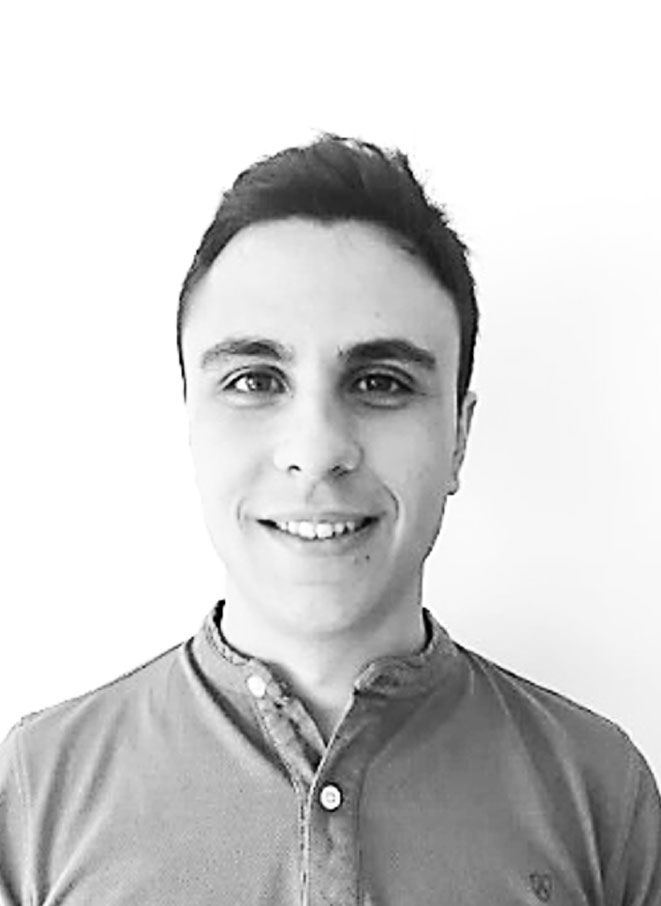
Felipe de la Cruz Martínez
Felipe de la Cruz-Martínez was born in Badajoz (Spain) in 1990. He studied chemistry at University of Extremadura where he began his career research working on the design of anticancer agents. Then, he moved at the University of Castilla-La Mancha where he completed his PhD studies on the carbon dioxide utilization for the synthesis of industrial valuable products under the supervision of Prof. Agustín Lara-Sánchez and Dr. José A. Castro-Osma. He also did a PhD stay at the University of York under the supervision of Prof. Michael North focused on the synthesis of CO2-based hydroxyurethanes. In 2021, he joined Dr. Jesús Campos group as a postdoctoral fellow working on the development of bimetallic pairs for the activation of small molecules. Since September 2022, he is based at the University of Castilla-La Mancha as an Assistant Professor.

Irene Sevilla Carrillo
Irene was born in 2000 in a village near Cuenca, Spain. She is a recent graduate in Biochemistry from the University of Castilla-La Mancha. In her Bachelor Thesis she investigated organometallic complexes as possible anti-tumour agents and also won the prize of the informative contest “Tu TFG en 3 minutos”. In the summer of 2022, she spent a stay at KU Leuven, where she worked on the internalisation of nanoparticles in 2D and 3D cellular models. In the next academic year, she will be in Albacete doing the Master in Experimental Biomedicine together with Alonso-Moreno’s group.
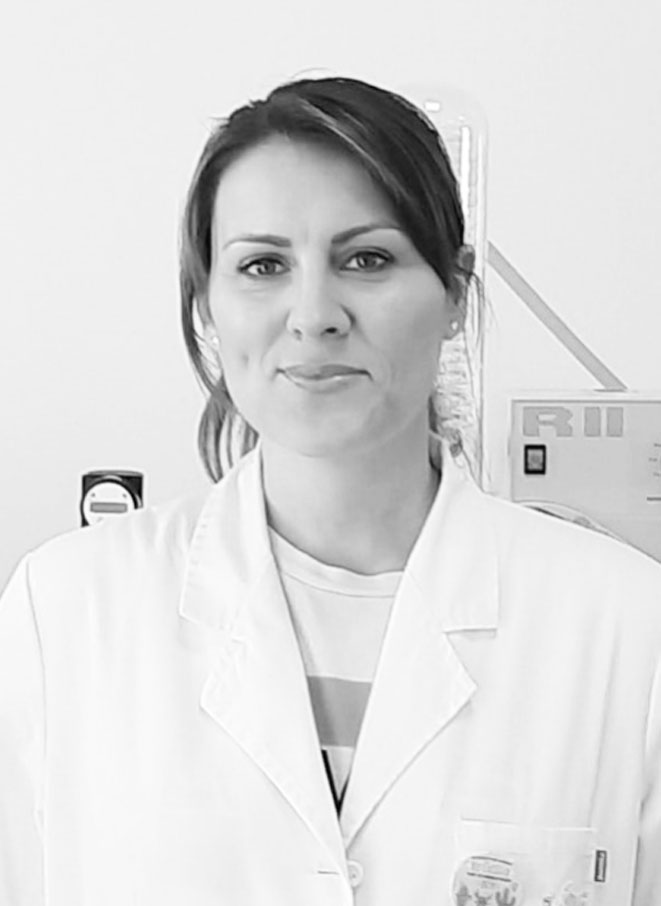
Almudena Ruiz García
Técnico de apoyo a la docencia y a la investigación
ORCID:
https://orcid.org/0000-0001-6326-9937
Graduated in Biology from the University of Valencia in 2005. In 2007 she joined Dr. Laborda´s laboratory as a PhD student under the supervision of Dr. Laborda and Dra. Díaz-Guerra to study the role of Notch proteins in macrophage activation. During that time, she published several works focused on the analysis of the glucose metabolic changes, associated with classical and alternative macrophage activation pathways. In 2012 she got a PhD in Experimental Biomedicine from the Castilla-La Mancha University (UCLM).
Since 2017 she works as a I+D technician at the UCLM Faculty of Pharmacy, to support the nanodrug group, led by Dr. Carlos Alonso Moreno.
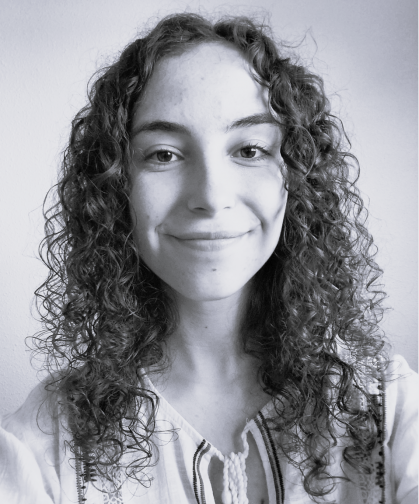
Beatriz Cuartero Gómez
Beatriz was graduated in Chemistry at the University of Alicante in 2023. During her last year of her degree, she was able to acquire knowledge in the field of inorganic synthesis. She is currently studying a Master in Experimental Biomedicine at the University of Castilla La Mancha. His research work, funded by the ACEPAIN association (Asociación Costuras en la Piel en Apoyo a la investigación de cáncer en Albacete), consists of the synthesis of nanomedicines for the treatment of cancer.
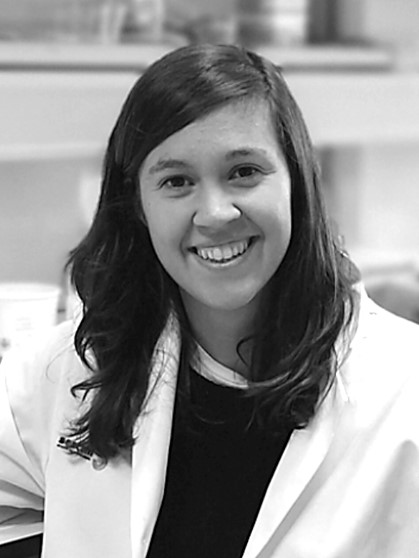
María del Mar Noblejas López
ORCID: 0000-0001-9250-9688
GOOGLE SCHOLAR: https://scholar.google.es/citations?user=5aCxiXkAAAAJ&hl=es&oi=ao
Mar was born in Argamasilla de Alba (Ciudad Real), Spain. She obtained her B.Sc. degree in Biochemistry in 2017 and her M.Sc. degree in Experimental Biomedicine in 2018 from UCLM. After finishing her degree, she got an internship in the Nencki Institute (Warsaw, Poland).
In 2023, she obtained her Ph.D. in Biomedical Sciences from UCLM achieved thank a FPU grant from Ministry of Education. During this PhD studies she did a predoctoral internship in Onkologikoa-Biodonostia, San Sebastián. In her thesis she explored the use of novel antitumoral drugs called PROTAC in breast cancer.
She is currently a postdoctoral researcher funded by ACEPAIN (Asociación Costuras en la Piel en Apoyo a la investigación de cáncer en Albacete). She focuses on the study of the molecular biology of tumors through biochemical studies, in vitro and in vivo antitumoral evaluation.
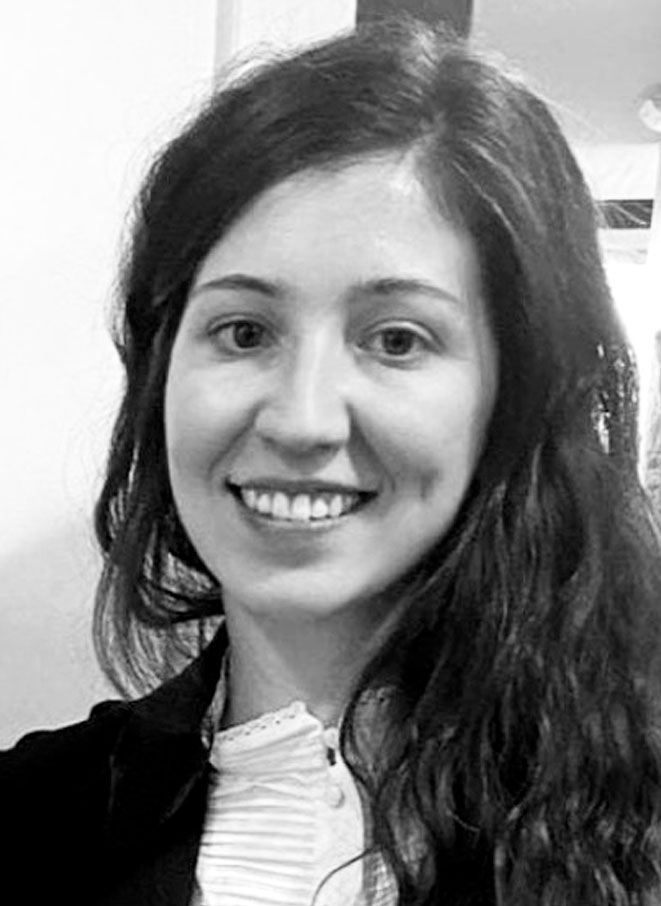
Carmen Moya López-Peláez

Elena Domínguez Jurado
Elena studied pharmacy at the University of Castilla-La Mancha. During those years she obtained several scholarships with which she was able to start her work in cancer research. After graduating in 2020, she got a contract with the University of Castilla-La Mancha to start her doctoral thesis in the area of inorganic chemistry.
Currently his research is based on the synthesis of new antitumor compounds as an alternative to existing drugs, as well as the development of nanoformulations that improve the activity of these compounds.
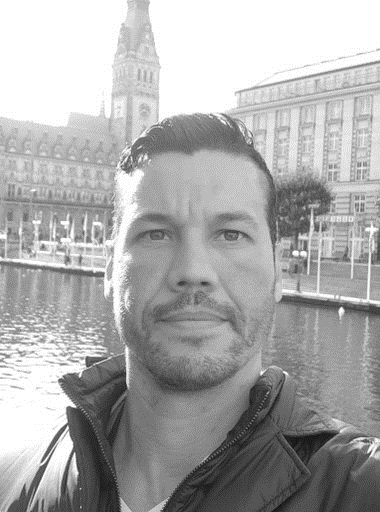
Daniel Hermida Merino
ORCID: https://orcid.org/0000-0002-8181-158X
Researchgate: https://www.researchgate.net/profile/Daniel-Hermida-Merino
I received the Master of Science in Physical Chemistry at the University of Vigo and I then completed a PhD in supramolecular polymers at Reading University. I then joined the ESRF as a post-doctoral fellow from Eindhoven Technical University first and then from Dutch Polymer Institute (DPI) to promote the research of polymer materials under processing conditions. Thereafter, I was promoted to beamline scientist responsible for the Dutch-Belgium SAXS/WAXS beamline (BM26b) at ESRF until I have been awarded the Maria Zambrano grant to join the University of Vigo as a researcher. The focus of my research is mainly aimed at the structure-properties relationship in the area of polymer physics, particularly the characterization of advanced polymeric materials in bulk, solution and thin films using a wide range of physical techniques. I have comprehensive experience in soft matter including polymer crystallization, polymer processing under industrial conditions and supramolecular self-assembly. In addition, my scientific projects are driven to advance in the design of novel functional polymeric materials with tailored properties with particular emphasis, on the use of green approaches and the generation of biocompatible materials featuring nanomedicine applications mainly due to the increase of societal demands for bioenvironmental policies.
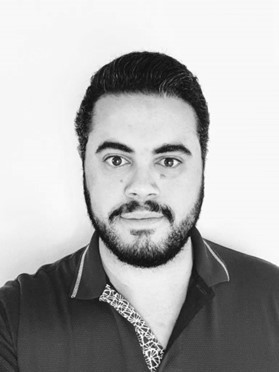
Abdessamad Gueddari Aourir
ORCID: 0000-0002-6599-3192
RESEARCHGATE: https://www.researchgate.net/profile/Abdessamad-Gueddari-Aourir
GOOGLE SCHOLAR: https://scholar.google.com/citations?user=TPZweD4AAAAJ&hl=en
Abdessamad Gueddari Aourir holds a Ph.D. in Industrial Engineering from UCLM (2019-2022), a Master’s degree in Industrial Engineering (2016-2018), a Master’s degree in Economics of Growth and Sustainable Development (2020-2021), and a Bachelor’s degree in Mechanical Engineering (2012-2016) from UCLM.
Currently, Abdessamad serves as a postdoctoral researcher at UCLM, CTO, and co-founder of CO2-AFP Engineering SL. He leads business R&D projects focused on transforming CO2 into valuable products, developing new engineering techniques to reduce industry carbon footprints through CO2 utilization strategies.
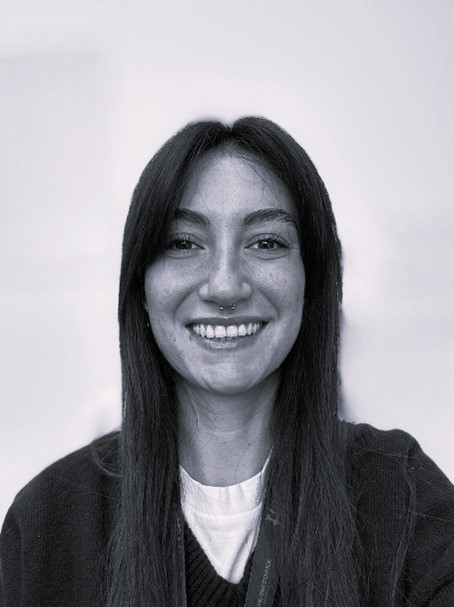
Eleonora Iannuzzi
Facultad de Farmacia de Albacete.
Estudiante predoctoral UCLM
ORCiD: 0009-0005-6538-4345
e-mail: eleonora.iannuzzi@uclm.es
Eleonora graduated in Pharmaceutical Chemistry and Technology from the University of Naples Federico II. During her academic training, she participated in several Erasmus programs in Spain, specializing in the formulation and synthesis of compounds for biomedical applications, active ingredient encapsulation techniques, stability studies, and physicochemical characterization.
She is currently a predoctoral researcher in Chemistry at the Nanodrug Unit of the Faculty of Pharmacy at the University of Castilla-La Mancha. Her research focuses on the design, synthesis, and characterization of new fluorescent sensors and probes for biomedical applications, aimed at monitoring cellular biomarkers. Her work combines spectroscopic studies and fluorescence lifetime imaging microscopy (FLIM) with applications in diagnostics and anticancer therapies, including the development of theranostic systems and photosensitizers for photodynamic therapy.
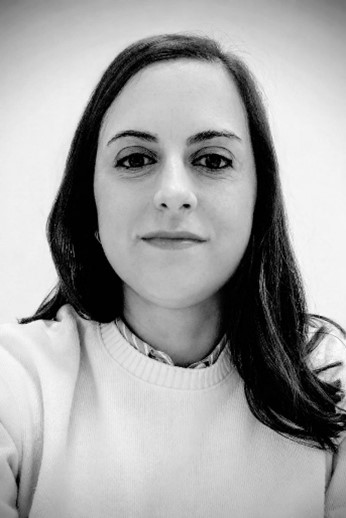
María Isabel González Sánchez
Facultad de Farmacia de Albacete, Universidad de Castilla-La Mancha (UCLM)
Profesora Ayudante Doctora
ORCID: 0000-0002-7390-5420
Researchgate: https://www.researchgate.net/profile/Maria-Gonzalez-Sanchez-4?ev=hdr_xprf
E-mail: misabel.gonzalez@uclm.es
María Isabel González holds a PhD in Chemistry from the University of Castilla-La Mancha. Her doctoral research was conducted in the field of enzyme kinetics and the design of biosensors based on peroxidase enzymes. During her postdoctoral stage, she carried out research stays at the University of the West of England (UWE), Cardiff University, and the University of Oxford, where she gained in-depth experience in a range of electroanalytical techniques, including their application to biological systems and plant cells. In 2022, she was awarded a postdoctoral contract for scientific excellence under the University of Castilla-La Mancha’s Plan Propio, at the Higher Technical School of Industrial Engineering of Albacete, where she continued her research activity in the development of sensors applied to the determination of compounds of biological and environmental interest.
She is currently an Assistant Professor at the Faculty of Pharmacy of the University of Castilla-La Mancha, where she teaches in the area of Physical Chemistry. Her research activity focuses on the study of photophysical processes involving molecules of biological and/or pharmacological interest, as well as on the design and characterization of new fluorescent sensors with biomedical applications, particularly aimed at the monitoring of cellular biomarkers.
